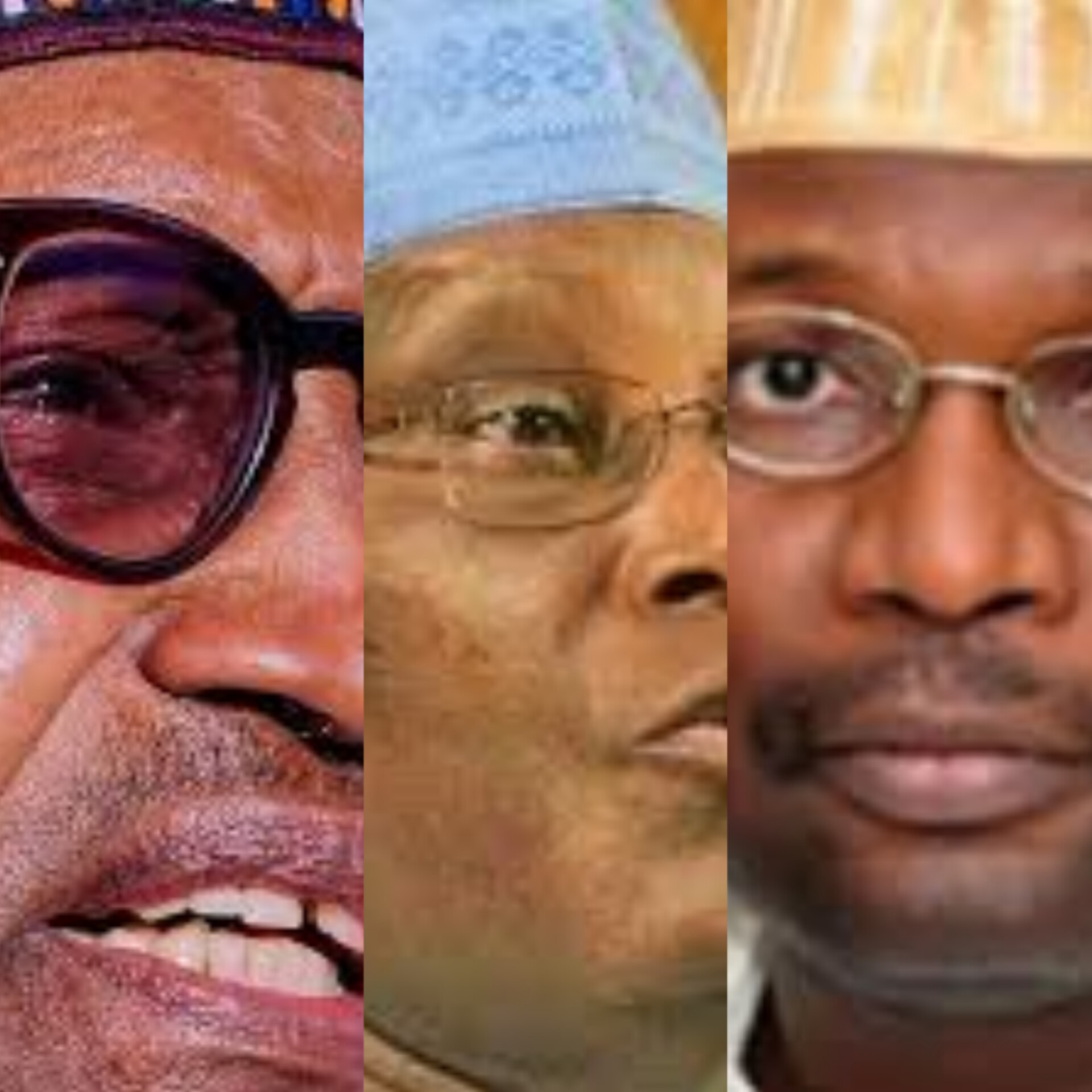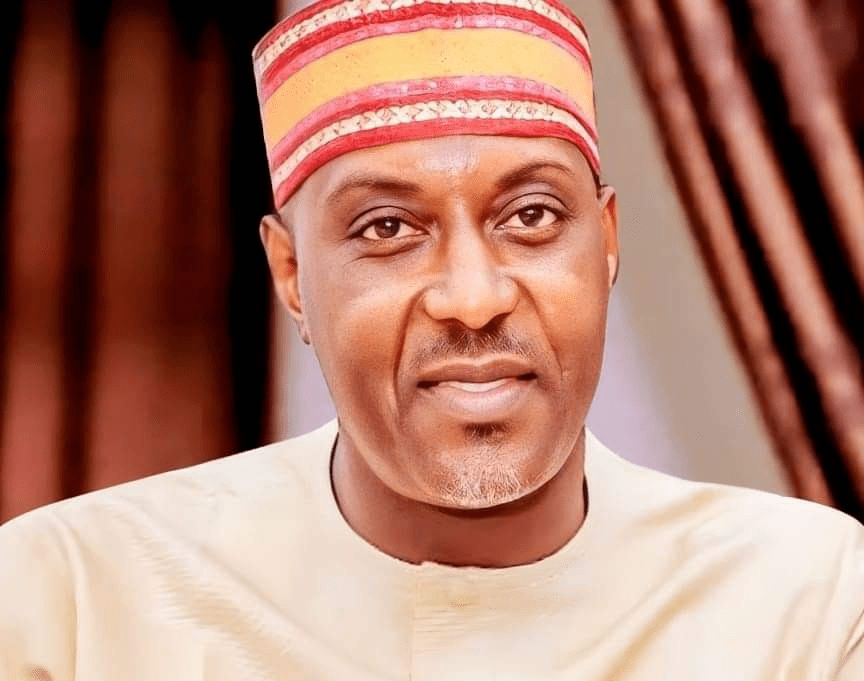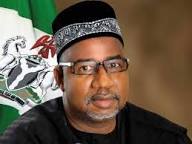By Tunde Olusunle
If there’s one Nigerian with irreparable integrity deficit today, it has to be Mahmood Yakubu. But he would thereafter be allowed to prosecute the most expensive, most corrupted, most opaque, most odious presidential election, in the subsisting Fourth Republic, Saturday February 25, this year. That exercise was a colossal shame and momentous tragedy to democracy and popular governance. On the scale of what Nigerians witnessed at the presidential polls, Mahmood has no business, absolutely none, remaining on his seat. More appropriately, he should be cooling off in the very same luxury accommodation where Nnamdi Kanu, the self-styled leader of the Independent Peoples’ of Biafra, (IPOB), has been a VIP guest for nearly two years now. The very fact that he will yet prosecute the gubernatorial and state assembly polls, is further evidence of our unseriousness as a people and as a nation.
INEC has been preparing for the 2023 electoral cycle since the last polls in 2019. Yakubu’s INEC budgeted a dizzying N400 Billion for the polls. That is the 2023 budgets of Osun, Ekiti and Yobe states, put together. Trainings, further trainings, skills acquisition programmes were organised for INEC personnel and election day operatives, before the polls. Simulations and test runs were carried out to bring Nigerians at par with the so-called innovations, improvements and new technologies to be deployed for the polls. It was an ecstatic polity which anticipated a new dawn in the manner our elections are henceforth conducted. The world was also an interested party in the preparation for, participation by our people, and prosecution of the polls per se.

Despite our diminished diplomatic capital especially in the last decade, the world continues to view Nigeria seriously because of our age-old global ratings. The quality and diversity of talent, scholarship, genius emanating from Nigeria and illuminating the world’s skies, is also reason the world is not giving up on Nigeria as yet. And so, election observers in their numbers, including highly regarded former presidents and prime ministers, were detailed by notable international bodies to monitor the polls. Photographs of luminaries like Thabo Mbeki, Uhuru Kenyatta, John Mahama, Bai Koroma, Boni Yayi, former presidents of South Africa, Kenya, Ghana, Sierra Leone and Benin Republic among others, have featured prominently in Nigerian dailies in recent days and weeks.
Yakubu, however, delivered a monumentally flawed election, Saturday February 25. Ultimately, it will very surely be light years away from the 2019 fraud, which the straight-thinking, know was won by Atiku. For starters, select information technology experts on the staff of the organisation, were reassigned days before the polls. Election materials and polling officers reported late in several instances, at the polling zones. Despite the previously pronounced “restriction of cash” by Buhari to mitigate vote-buying, the trend became even more pronounced at the recent polls. Identifiable people like a local government chairman in Kogi State, seized a polling station aided by uniformed policemen, chased away voters and electoral officers and destroyed ballot boxes.
Buhari himself was a major offender at the Saturday February 25, polls, having contravened relevant sections of the electoral law. Upon thumb-printing the ballot paper for his preferred candidate, the president displayed the ballot paper, not only to other voters in his unit, but to Nigerians in general. Buhari was captured real-time perpetrating such irresponsible illegality, in contravention of provision 122 (1) of the Electoral Act 2022. The section says: “Every person in attendance at a polling unit including every officer charged with the conduct of an election and his or her assistants and every polling agent and candidate in attendance at a polling station or at the collation centre, as the case may be, shall maintain and help in maintaining the secrecy of the voting.” Subsection (4) of this section prescribes committal to prison for three months or a fine of N100,000, or both, to violators of this law. As though by previous rehearsal, Abubakar Malami, Buhari’s justice minister, committed the very same offence in his polling unit in Kebbi State. Malami, is reputed a Senior Advocate of Nigeria, (SAN), and the nation’s chief law officer.
As military president, Ibrahim Babangida nullified MKO Abiola’s victory in the historic June 12 1993 presidential poll. Among the contentious grounds for the annulment of that election, was that as candidate of the Social Democratic Party, (SDP) in that election, Abiola donned a national dress bearing the logo of his party to his polling unit. This was in contravention of electoral provisions, even at that time. Thirty years later, Buhari is remorselessly trailblazing “top to bottom” disdain and disrespect for rule of law, in a government he supposedly heads. By the day, it gets clearer that Buhari actually coveted the presidency not to leave a glorious imprimatur of altruistic service, specifically. Rather, the office is to him, a personal trophy to assuage his erstwhile sense of loss arising from his 1985 ouster, by Babangida and company.
And so, Nigerians were taken through that wholesale charade at the presidential polls. The BVAS equipment could upload the results of the national assembly polls, but could not do same for the presidential poll, held same time with the parliamentary polls! Mahmood Yakubu was at it again, apparently. The server had been intentionally and deliberately recalibrated not to receive the results of the presidential election. Initial results were not looking good for the candidate of the ruling party, thus the panic to disable the server. For the second time in four years, INEC and its notorious server had been deployed for the wilful and criminal subversion of popular will.
Local and global disclaimers and condemnation have come from observers at the levels of the Economic Community of West African States, (ECOWAS); the African Union, (AU); the Commonwealth and the European Union, (EU). This is not excluding various non-governmental organisations, (NGOs) and world powers including the United States of America, (USA) which has loudly described the election as below par. The cooked-up results of Nigeria’s presidential election has been announced Wednesday February 28 and a winner, Bola Tinubu of the APC pronounced. INEC has since presented to him the Certificate of Return. Disaffected candidates and parties have been enjoined to “go to court.” This new expression has gained currency in recent weeks, irrespective of the serially demonstrated toothlessness of the judiciary within the context of our own governance system. On the social media lately, a sticker purportedly emanating from East Africa has been trending. It says: “When a thief tells you to go to court, just know that his brother is the judge.” “Go to court,” Nigerian-style therefore is like telling the aggrieved to go to hell or to Golgotha as the case may be. His fate is most probably, previously sealed.
Curiously, very worryingly, since the declaration of the poll outcome, there has been no celebration, no jubilation anywhere. The streets are mute, the national space in mournful, graveyard quietude. Our people in the south west are famous for ever raising the bar when it comes to partying, revelry and ceremonies. There’s typically no dulling, to appropriate from the vocabulary of the street, for our compatriots from the Yoruba country. Not many reports of dignitaries, home-based and foreign are queuing up to congratulate the “president-in-waiting” and have photo opportunities with him, are trending. What is going on? The president-elect from what we’ve seen thus far it is, who has been going about, gleefully showing off his certificate to Buhari, to the Oba of Lagos, Oba Rilwan Akinolu, and similar dignitaries.
I’ve just seen this skit on the social media, where Tinubu was described as “INEC-elect!” There is also this joke also on the social media about the fact that Tinubu seems to love the ownership of a certificate so much, despite his inability to produce just one credible and identifiable sample, as prerequisite for eligibility at the polls. Back to back now, Nigerians have elected two presidents who could not present the constitutionally prescribed certificate of most basic academic qualification, the West African School Certificate Examination, (WASCE) ordinary level certificate. This is one of the precedents the inglorious Buhari regime has set for Nigeria.
I’ve heard in certain quarters, that the chicanery and evil machinations which attended the presidential election, was a coordinated plot to deny Atiku Abubakar of outright victory. Evidence from raw scores from over 160,000 polling units across the country, point to the unassailable lead of the former vice president. Atiku has fought many legal battles all the way to the Supreme Court of Nigeria, excelling in almost all his judicial interrogations of the Constitution and other laws. The world must not forget Atiku’s lion-hearted opposition to the third term ambition of his former principal, Olusegun Obasanjo, which remains at the subsisting beef between both men, till this day. The gentle and genteel Atiku believes the rule of law should be enabled to develop the needed tap roots to guide the evolution of our democratic system. Many of those running for elective offices unencumbered today, are beneficiaries of Atiku’s selflessness in years past.
Atiku may yet be president of the Federal Republic of Nigeria. Olukayode Ariwoola, the Chief Justice of Nigeria, (CJN), and his colleagues have a responsibility to prosecute a totally unbiased adjudication of matters arising from the election. Atiku’s ultimate ambition and desire, has always been to witness in his time, a country that works for everyone. In his quiet corner as a private citizen, Atiku by the day, addresses issues and problems which are otherwise commonplace and should have been dispensed within the structures of a functioning, functional polity. Talk about “the individual as mini-government.” The issues emanating from the polls will surely go all the way to the apex court in the land for in anticipation of
dispassionate arbitration. The blatant, daylight rape of democracy on Saturday February 25, 2023, must not be allowed to stand. We must get to the core of the most recent electoral brigandage, aided and abetted by INEC, if we must be taken seriously as a country, and if our country deserves utmost loyalty from its people. Justice in this conundrum must be very well served and be seen to be so served.
Tunde Olusunle, PhD, poet, journalist, scholar and author, is a Member of the Nigerian Guild of Editors, (NGE)




